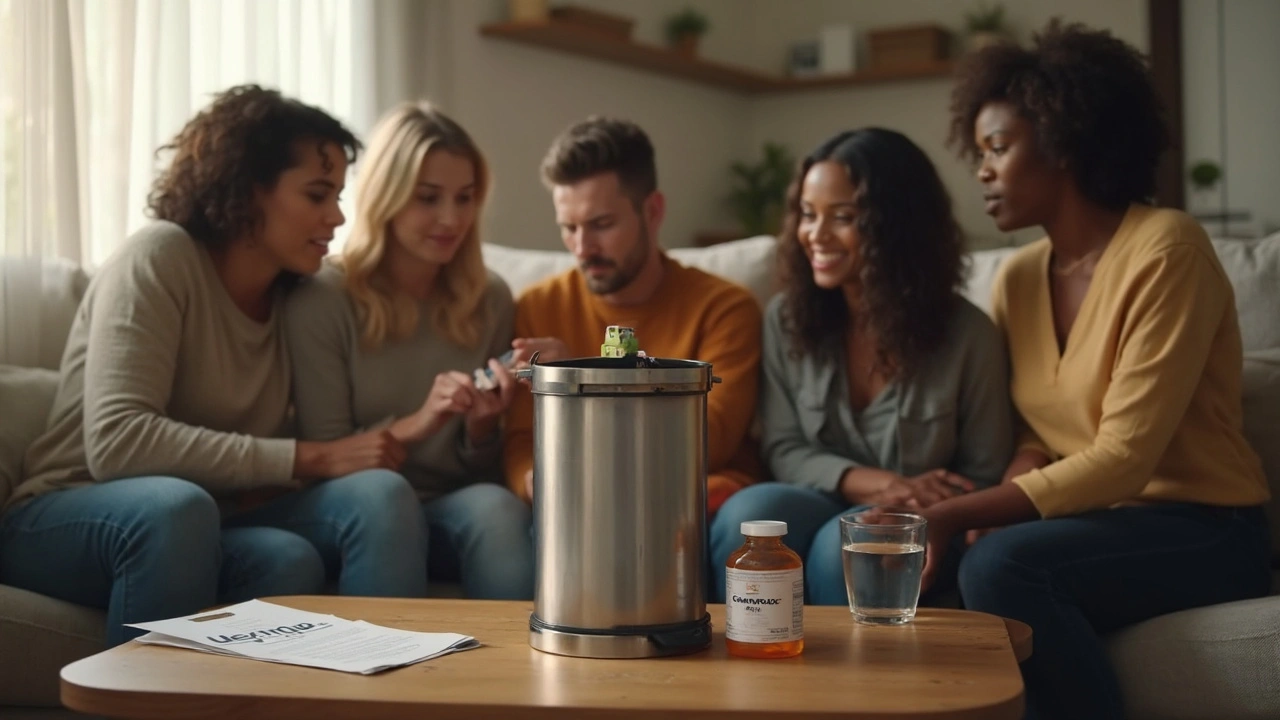Stop Smoking Pill: What It Is and How It Can Help You Quit
If you’re tired of lighting up and want a fast way to break the habit, a stop smoking pill might be the answer. These meds target the cravings and withdrawal that make quitting feel impossible. Unlike gum or patches, a pill delivers the active ingredient straight to your bloodstream, so you feel steadier relief with fewer daily actions.
Common Types of Stop Smoking Pills
The most popular prescription options are varenicline (often sold as Chantix) and bupropion (known as Zyban). Varenicline mimics nicotine, tricking brain receptors into thinking you’ve had a hit, which cuts cravings. Bupropion works on dopamine and norepinephrine, helping mood stay balanced while nicotine withdrawal hits. Both require a short starter dose, then a regular schedule for a few weeks.
How to Use the Pill Safely
Start the medication at least a week before your quit date. This gives your body time to adjust and lets you notice any side effects early. Take the pill with water, usually once or twice a day, exactly as your doctor advises. If you miss a dose, take it as soon as you remember unless it’s almost time for the next one – then skip it and keep the regular schedule.
Most people feel the biggest cravings fade after the first two weeks. You might still have occasional urges, but they’re usually weaker and pass quicker. Staying busy, drinking water, and chewing sugar‑free gum can help you ride out those moments.
Side effects are generally mild: headaches, nausea, or trouble sleeping are common. If you notice mood swings, vivid dreams, or any severe reaction, call your doctor right away. They can adjust the dose or suggest a different option.
Don’t combine the pill with other nicotine products unless your doctor says it’s safe. Mixing with cigarettes or e‑cigs can raise the risk of side effects and undercut the benefit of the medication.
Remember, a pill isn’t a magic bullet. Pair it with a solid quit plan – set a clear quit day, tell friends for support, and track your progress. Many programs also offer short counseling sessions that boost success rates.
When the prescribed course ends, you’ll usually be off the pill and nicotine‑free. Some folks keep a low‑dose version for a few extra weeks to avoid relapse, but that’s a decision to make with your doctor.
Bottom line: stop smoking pills give you a steady hand during the toughest part of quitting. Choose the right type, follow the schedule, and back it up with healthy habits. You’ll increase your chances of staying smoke‑free and feeling better in weeks, not months.
-
26
Get the real story on Champix, the stop smoking pill, how it works, side effects, and tips for quitting. Find out what to expect and if it's the right choice for you.
Tags Weight
- online pharmacy
- side effects
- medication safety
- dietary supplement
- dosage
- online pharmacy safety
- drug interactions
- generic drugs
- health benefits
- allergy relief
- autoimmune disease
- antibiotic
- pharmacy reviews
- affordable antidepressant
- gut health
- safe online meds
- prevention
- patient safety
- NSAIDs
- drug interaction

